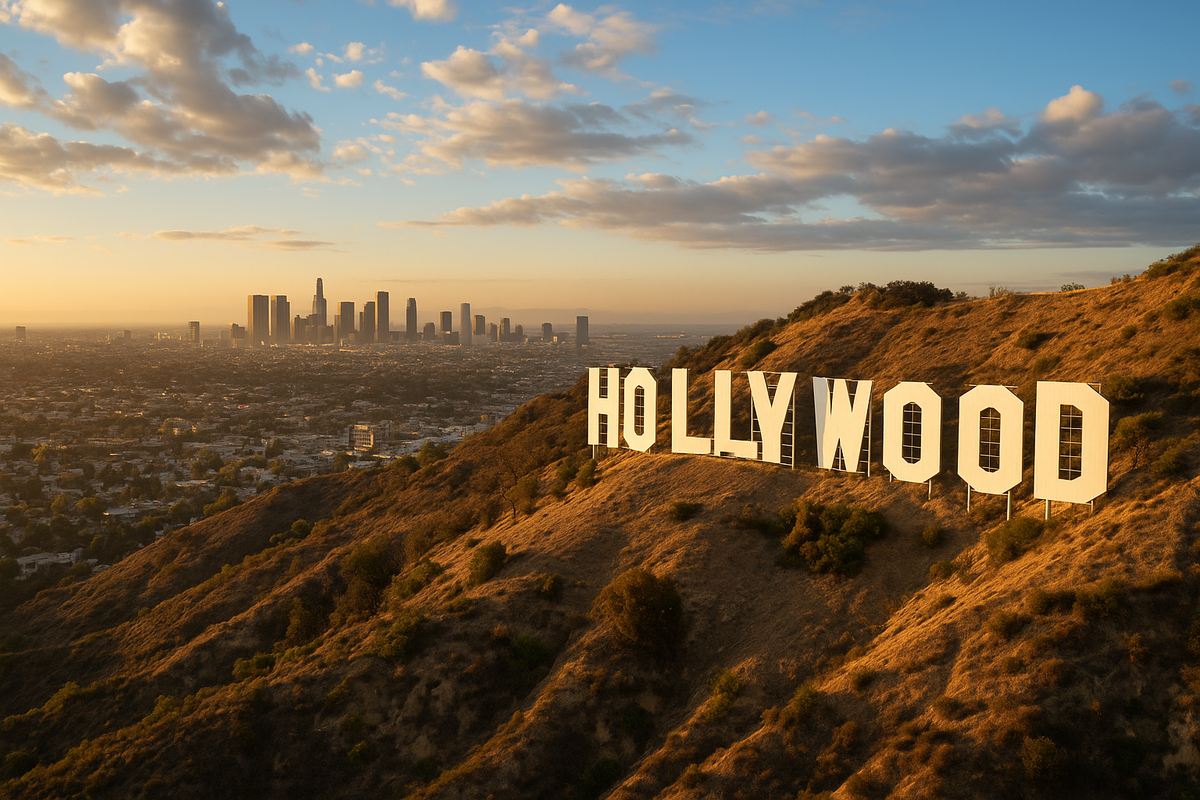
For over a century, "Hollywood" has been synonymous with the global film industry — the glitzy epicenter of movie-making dreams. But in 2025, that image is becoming more nostalgia than reality. A series of compounding forces — from devastating wildfires and rising costs to changing labor laws and global production incentives — are reshaping the map of filmmaking. The Hollywood sign may still stand tall, but the business behind it is increasingly moving elsewhere.
The Fire That Fueled a Flight
The catastrophic wildfires that swept through California last year dealt a brutal blow to an already struggling production economy. Major studio lots faced weeks of shutdowns, film sets were destroyed, and insurance premiums skyrocketed. While the fires were a natural disaster, they accelerated an existing trend: the growing impracticality of keeping large-scale productions rooted in Southern California.
In an industry where downtime can cost millions, many producers have chosen not to rebuild in California at all. Instead, they’ve taken their projects to cities and countries that offer more stability — both environmental and financial.
Major Studio Closures: A Symbol of Change
The closure of several legacy studios in Los Angeles shocked the industry but shouldn't have come as a surprise. With overhead costs climbing and fewer productions staying local, the traditional Hollywood business model — owning expensive real estate and permanent stages — has become increasingly unsustainable.
Many studios are pivoting to smaller footprints, renting out flexible production spaces, or investing in virtual production stages elsewhere. Streaming giants and indie producers alike are asking: Why lock yourself into high-cost infrastructure when technology now allows more mobility?
New Labor Realities: A Heavy Burden
California's updated payroll and remittance regulations, while designed to protect workers, have unintentionally added significant friction and cost to production management. Increased paperwork, stricter compliance demands, and heavier tax burdens have made the logistics of shooting in Los Angeles more cumbersome than ever.
Film workers — the backbone of the industry — are feeling the effects too. Many mid-level professionals are relocating to more production-friendly hubs like Georgia, New Mexico, and even British Columbia, where union rules still offer protections but with fewer bureaucratic hurdles.
The Global Advantage: Currency and Cost
Currency fluctuations are another key factor driving productions overseas. For American studios, a strong U.S. dollar means that shooting in Canada, Europe, or parts of Asia can stretch budgets significantly further.
Add to that the aggressive tax incentives offered by regions like the UK, Australia, Eastern Europe, and various Canadian provinces, and it’s no wonder that productions from Marvel blockbusters to prestige TV dramas are setting up shop abroad. In some cases, producers are saving 20–30% on overall production costs simply by leaving Los Angeles behind.
Red Tape and Regulations
Ironically, the very regulations designed to protect California’s neighborhoods and workers have, in some cases, pushed filmmakers away. Lengthy permit processes, strict environmental and noise restrictions, and skyrocketing location fees are making Hollywood filming more bureaucratic and expensive than ever.
Meanwhile, emerging global hubs are rolling out the red carpet — offering streamlined permitting, concierge-level support, and government-backed incentives to attract productions quickly and efficiently.
A New Era of Decentralized Filmmaking
Today’s filmmaking is more mobile, global, and virtual than ever before. Projects that once would have been anchored to Hollywood lots are now filmed across multiple countries, stitched together digitally in post-production, or created entirely on LED stages.
While Hollywood will always retain a powerful cultural identity — and the talent pool it nurtured will continue to feed the industry worldwide — it’s no longer the gravitational center of film production.
Instead, we are entering a truly decentralized era of filmmaking, where creativity flows freely across borders, driven by economic reality, technological innovation, and the search for flexibility.
For the dreamers, storytellers, and entrepreneurs of cinema, the world itself has become the new backlot.
Chris Sturges, Business Development Director for
Suspiciously Convenient Productions Inc
Contact: chris@suspiciouslyconvenient.com
Tags: #Hollywood Exodus #Global Filmmaking #Film Industry Shift
#Production Trends #New Era Cinema #Beyond Hollywood

